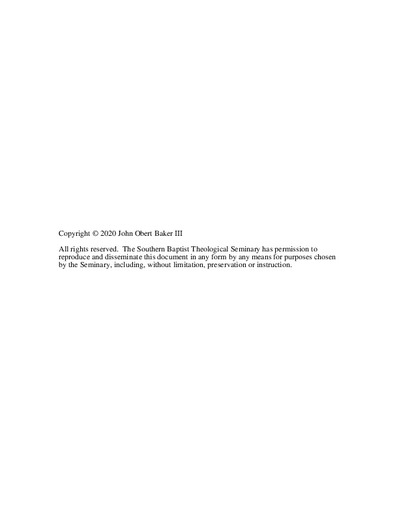American Individualism's Effect on Discipleship in Church Revitalization: A Mixed Methods Study
Abstract
As the over-arching culture of North America becomes ever more post-Christian, the church in North America continues to decline. Nearly 75 percent of Southern Baptist Churches are plateaued or are in decline. Some have responded by planting new churches while others emphasize revitalization to return life to these plateaued and dying churches. Most of these efforts emphasize programmatic responses. Little if any consideration is given to the unique socio-cultural orientation of church leaders and church members which contextualizes the implementation and impacts the outcomes of these programs.
The purpose of this explanatory multiphase sequential mixed-methods study was to investigate the relationship between a revitalization leader’s socio-cultural orientation, specifically concerning individualism and collectivism, and that leader’s perception of their church’s revitalization process. In phase 1, the study identified growing, declining, and plateaued churches. In phase 2, churches that met criteria indicating they had experienced revitalization were invited to participate in a survey related to their experience. In phase 3, churches that responded to the phase 2 instrument were invited to participate in a second survey designed to measure the respondent’s socio-cultural orientation. In phase 4, select revitalization leaders whose socio-cultural orientation was strongly individualistic or collectivistic were invited to participate in qualitative interviews. The interviews examined how revitalization pastors understood several critical aspects of their church’s revitalization in light of their socio-cultural orientation. The study identified key differences and similarities in how revitalization leaders of differing socio-cultural orientations understand revitalization. The study also suggested further research on issues significant to furthering our understanding of the influence of socio-cultural orientation on church revitalization.

